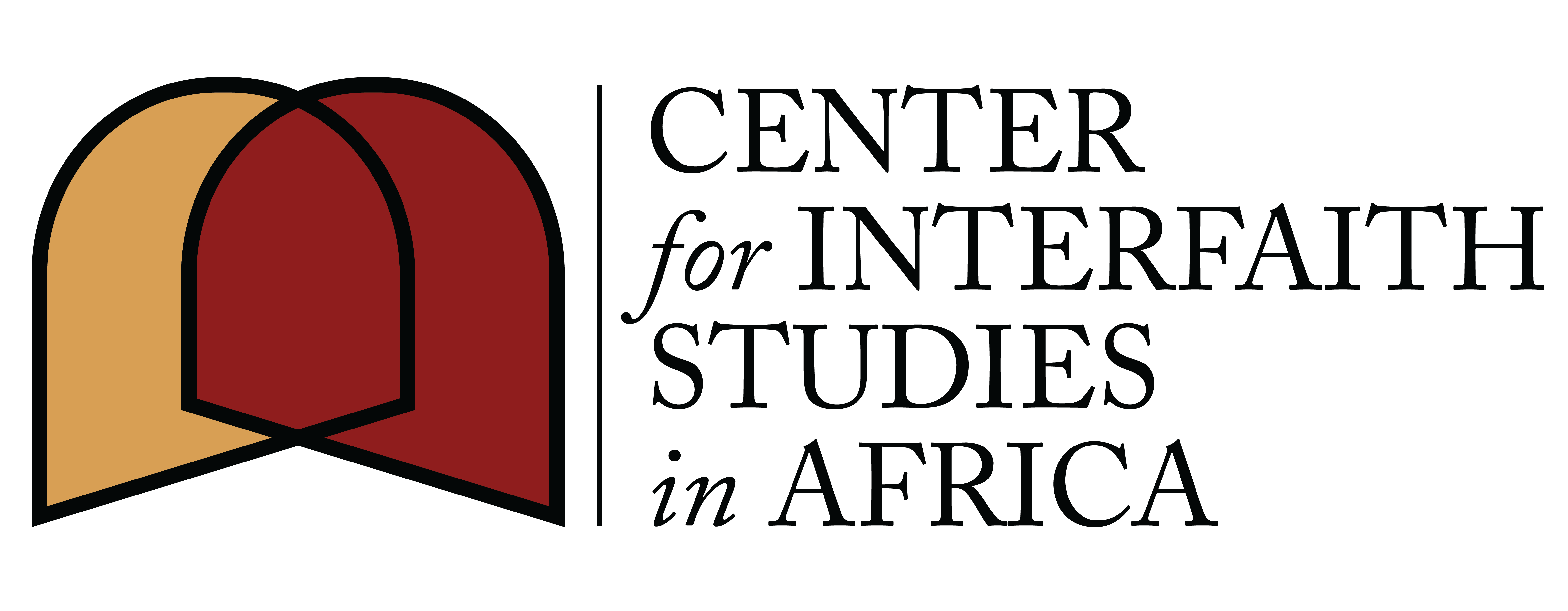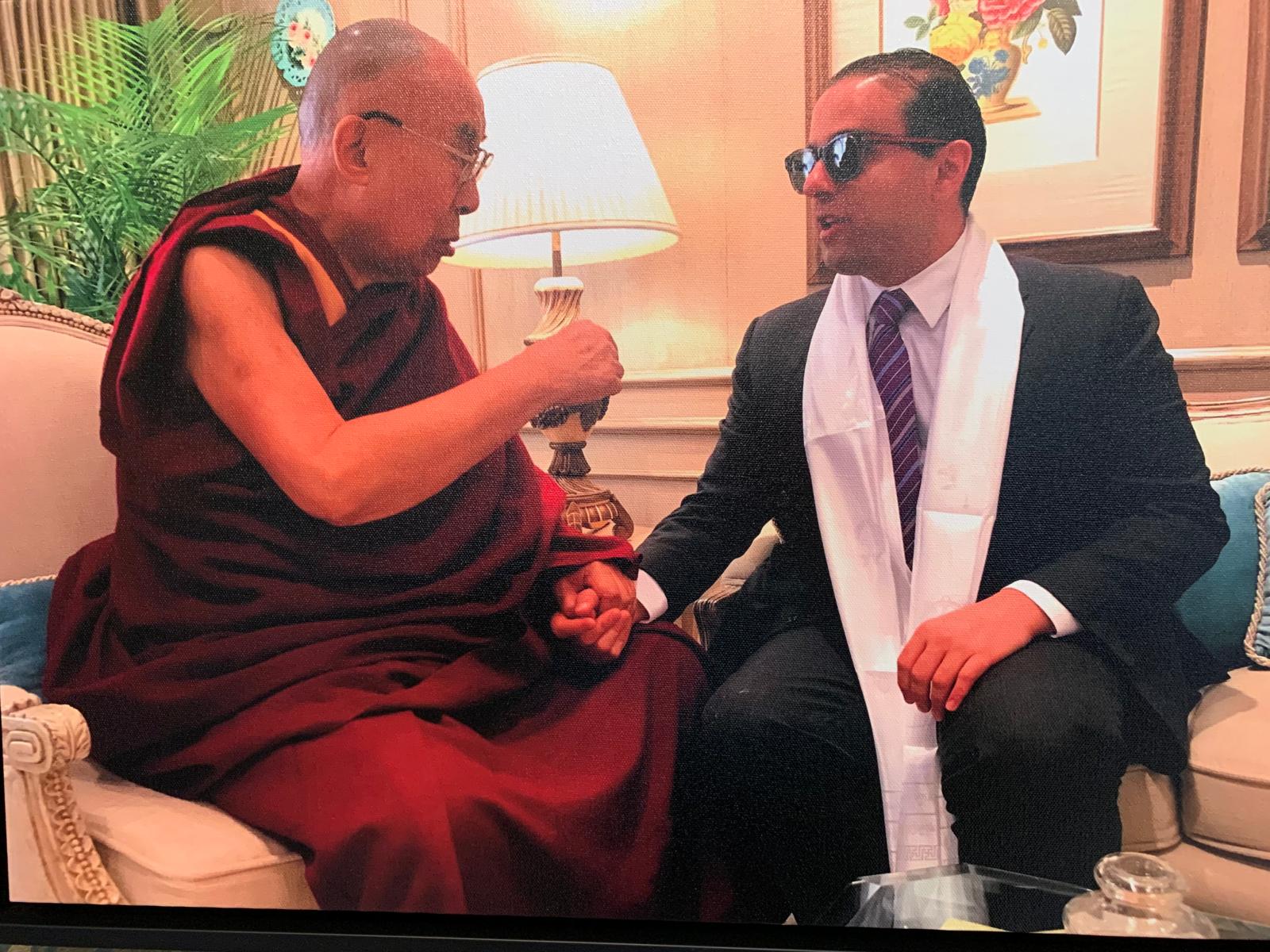Cyrus with His Holiness the Dalai Lama @Cyrus Habib 2018
December 10, 2018, turned out to be one of the most consequential days of my life. I had traveled to India as Washington State’s Lieutenant Governor to formally invite His Holiness the Dalai Lama to visit Seattle for the launch of a compassionate leadership program. As it happened, that day marked the fiftieth anniversary of the death of Thomas Merton—the Trappist monk, spiritual writer, and advocate of interreligious dialogue. Merton had died in Thailand, electrocuted just weeks after spending time in conversation and contemplation with this same Dalai Lama. Merton must have been praying for me that day; during a ninety-minute private audience, the Dalai Lama and I spoke about what it means to live a purpose-filled life rooted in service. That conversation gave me the clarity—and courage—to return to my hotel room and formally begin the process of applying to the Jesuits.
That a Buddhist monk would help inspire my call to the Catholic priesthood might seem surprising, but my relationship with God has always unfolded within an interfaith context. I’m the son of Iranian Americans who emigrated during the Islamic Revolution. My parents came from secular Muslim families—neither practiced the faith—but religious pluralism shaped our home in quieter ways. My mother had attended Catholic schools in Tehran and spent a year in a dormitory run by a women’s religious order in Paris, experiences that left her with both knowledge of and affection for the Church.
We lived in Maryland, where most of our friends were Catholic. We often attended Christmas or Easter Masses, and when I was battling the cancer that would eventually cost me my eyesight at age eight, my parents brought me to the shrine of St. Elizabeth Ann Seton to pray for healing. And, on a lighter note, Santa always found his way to our house to leave presents under the Christmas tree.
Still, we weren’t Catholic. Islam is deeply woven into Persian culture, and even in a home with bacon and red wine, where we never fasted for Ramadan or visited a mosque, its influence was present. Like many Iranian families, we owned a beautifully bound Qur’an that appeared during Nowruz, the Persian New Year. Words like inshallah, bismillah, and mashallah were part of our everyday vocabulary. Most importantly, I was raised to believe in the oneness and goodness of God, and to respect all religious traditions.
That spiritual openness—what I might call “generic monotheism”—carried me through childhood and into college. The terrorist attacks on 9/11 and the wave of anti-Middle Eastern sentiment that followed led me to explore my cultural and religious heritage more deeply as a student at Columbia. I added a major in Middle Eastern Languages and Cultures, which allowed me to encounter and explore the Sufi philosophical and poetic tradition. But my engagement remained academic. I might whisper a prayer before an exam or when asking a girl out for the first time, but I generally thought of myself as agnostic. The question of God’s existence felt distant, and I was content to keep it that way.
That began to change during my second year as a graduate student at Oxford. One day, a friend invited me—somewhat improbably—to join him at Mass. I had no real interest in organized religion, and aside from a few childhood memories of Midnight Mass, Catholicism meant little to me. I agreed to go mostly out of curiosity about the music, which my friend promised would be “medieval and spooky.”
I didn’t have a sudden awakening. But I did feel something unexpected: a deep interior stillness I hadn’t known I needed. I found myself returning to that chapel at Blackfriars Hall the following week, and then the next. Over time, I began not just to hear the words of Fr. Timothy Radcliffe’s homilies, but to want to believe them. Gradually, I did. Two and a half years later, in 2007, I was baptized and confirmed in the Catholic Church.
“Conversion” can be a misleading term. It often implies rejecting one tradition for another. That’s not how I experienced it. My early exposure to both Catholicism and Islam, along with the Shabbat dinners and Passover Seders I attended at friends’ homes as an adult, all shaped my spiritual awakening. While I now follow Jesus—who found me wandering in my own wilderness and called me into the Church—God’s fingerprints are all over my life. My moral and spiritual formation came not from a single source, but from many.
The same is true of my Jesuit vocation. Even before I met the Dalai Lama, my desire to center my life on God had been stirred by spiritual leaders from many traditions. As Lieutenant Governor, I also served as President of the State Senate. Each morning when the Senate convened, we invited a faith leader to open the session with prayer. When I could, I’d take time to speak with these rabbis, imams, priests, and ministers. I came to realize that I felt more drawn to their lives than to the political one I had so diligently built for myself.
In 2020, I entered the Society of Jesus. These past five years have been life-giving in myriad ways. From two formative years as a novice in Los Angeles, to studies in Chicago, to my current work in Nairobi with the Jesuit Conference of Africa and Madagascar, God has showered me with graces. A particularly meaningful gift was the chance to spend three semesters engaged in a directed study of Sufi poetry in the original Persian. And unlike my undergraduate exposure to those texts, I now read the great spiritual poets Rumi, Hafez, and Saadi with a heart open to God’s mysterious workings.
As I write this, I’m especially grateful for the chance to collaborate with Fr. Litoing and the Center for Interfaith Studies in Africa—an experience that will doubtless enrich my vocation. If my journey has taught me anything, it’s that, as our Ignatian tradition teaches, God is to be found in all things. May CISA continue to educate, accompany, and convene seekers from every tradition, so that in listening to one another, we may better hear the voice of God.


0 Comments